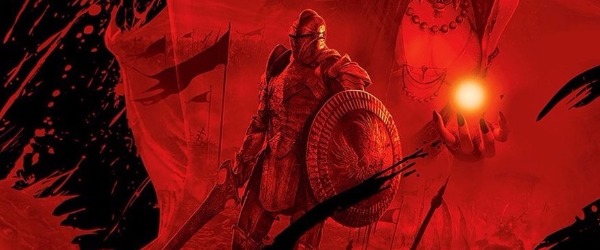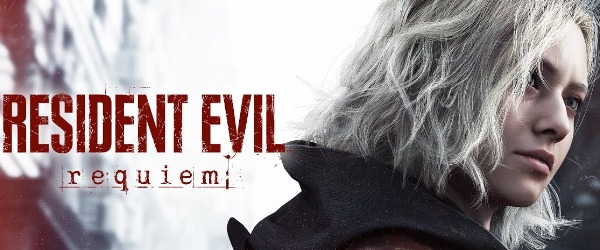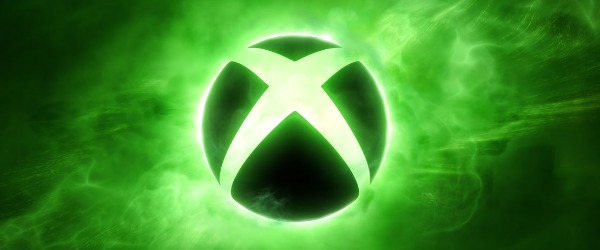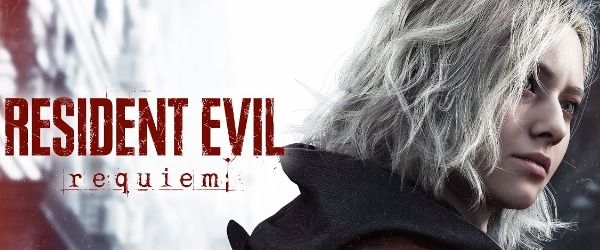
History of Video Games: A War Reignited (2001-2002) - Article
by Taneli Palola , posted on 22 April 2016 / 14,689 ViewsWe last left off at the end of 2000. Sega's Dreamcast was on its last legs, being overwhelmed by the popularity of Sony's PlayStation. After two consecutive console generations without a successful console under its belt, Sega was losing both money and patience. In the middle of all that, Nintendo was scrambling to hold on to as much of the market as it could with the N64. Nintendo was the undisputed king in the handheld market, but Sony now held sway over the rest of the playing field.

2001 began with some sad news. On January 31st Sega announced that it would be discontinuing the Dreamcast on March 31st and in the process would withdraw from the console manufacturing business for good. This would bring an end to Sega's 18 years in the console business, beginning in 1983 with the SG-1000 and now coming to an end with the Dreamcast. At its peak Sega was on equal ground with Nintendo when that company was at the top of the industry; something no other firm had been able to do until Sony with the PlayStation.
With Sega and the Dreamcast out of the picture, the PS2 was the only sixth generation console on the market for a time. However, that would change drastically by the end of the year. Nintendo was finally ready to bring out its follow up to the N64, which had been floundering behind the PlayStation for several years by this point. The GameCube launched in Japan on September 14th and in North America on November 18th (Europe didn't get it until the following year).

Even more significant was the emergence of Microsoft as a console manufacturer. The Xbox had been announced in early 2000 and was finally released in November the following year in North America - just three days before Nintendo's GameCube. The console would be released elsewhere in the world in early 2002. With the Xbox Microsoft became the first American company to enter the console market after Atari's unceremonious exit in the mid-90s.
Suddenly, with three sixth generation consoles on the market, things were becoming interesting again. The PS2 had been left to dominate the marketplace alone for quite a while in gaming terms, but now it seemed like there was finally some real competition on the horizon.

The main issue for the two newcomers was the fact that - by the time they entered the race - the PlayStation 2 had already flew passed 20 million units sold, and by the end of the year it was at nearly 25 million sold. Of course it eventually turned out that sales of the PS2 by that point alone were already higher than either of the other consoles' entire lifetime sales, but at the time the emergence of two new consoles on the market had the impression of shaking things up.
The previous console generation was still holding on as best it could, with both the original PlayStation and the Nintendo 64 getting some very good games in 2001. The most notable PS1 titles were Final Fantasy Chronicles, which brought Final Fantasy IV and Chrono Trigger to the console, and Dragon Warrior VII, which got its North American release in October.
Similarly, the N64 received a few notable titles that deserve mentions, including Dr. Mario 64 and Mega Man 64, but the two most important new releases once again came from Nintendo and Rare. Nintendo brought out Paper Mario in February, which was the second Mario RPG and the first Paper Mario game. Meanwhile Rare created its last great game for the rapidly aging system in Conker's Bad Fur Day, a decidedly unusual game for a Nintendo platform given its irreverent humour. It would ultimately prove to be one of the console's most technologically impressive titles.
Despite being discontinued earlier in the year the Dreamcast also still saw some headline releases. Phantasy Star Online, Crazy Taxi 2, and perhaps most notably, Sonic Adventure 2, were all released worldwide in 2001.

Attention was mainly focused on the newer platforms and their key titles, despite both the GameCube and Xbox having fairly sparse line-ups in general. GameCube players got their hands on Star Wars Rogue Squadron II: Rogue Leader, Luigi's Mansion, Pikmin, and Super Smash Bros. Melee. Melee quickly became the console's best-selling title and eventually topped 7 million units. The rest of these titles would also become million sellers in their own right.
Before its launch the Xbox was an unproven commodity. Gamers generally knew what to expect from Nintendo and Sony in terms of software by this point, but Microsoft's offerings were almost entirely unknown. As such, the console needed a system seller as quickly as possible. Fortunately for the console, it got exactly that.

The game in question was of course Halo: Combat Evolved, a title which was originally meant to be the killer app for Mac computers before Microsoft bought developer Bungie and secured the game for its console. Halo was the launch title to get for the Xbox; it drove hardware sales from the very beginning and went on to sell 6.43 million units, becoming the second best-selling game on the system. Curiously, the Combat Evolved subtitle was added at the behest of Microsoft marketers who felt that Halo wasn't a name that would be able to compete against other military shooters of the time.
Together with games like Dead or Alive 3 and Project Gotham Racing coming out at launch the Xbox had sown the seeds for success, at least in the short term. Indeed, both the GameCube and Xbox got off to strong starts, but building and maintaining this momentum was a much harder ask, especially given that there was no doubt as to which console was leading the pack in 2001. The PS2 far and away the most popular home console at the time, and the number of quality games releasing on it reflected this.

The first half of the year was no slouch for Sony's platform, with such games as Onimusha: Warlords, Klonoa 2: Lunatea's Veil, Red Faction, and Twisted Metal: Black all coming out within a few months of each other, but things truly began to take off in July, with the release of one of the console's biggest ever games - Gran Turismo 3: A-Spec. This particular game would go on to become the best-selling game in the series, as well as the third best-selling game on the platform in general, with 14.98 million units sold.
In September the PS2 got Silent Hill 2 and Ico within a week of one another. Then October saw the debut of Devil May Cry and the release of the second biggest game of the year on the platform - Grand Theft Auto III. It turned a relatively successful series into one of the biggest franchises in video game history that would go on to dominate sales charts whenever a new game in the series was released.
November saw the release of Burnout and Metal Gear Solid 2: Sons of Liberty, which still stands as the best-selling game in the series while also being perhaps one of the most divisive games ever released due to its bait and switch with the main character.
Finally, to cap off an absolutely huge year for the PS2, December brought with it Jak and Daxter: The Precursor Legacy, Shadow Hearts, and Final Fantasy X, which was yet another massive sales success for the console at over 8 million units sold. The most impressive part of all of this is that the games I just listed make up only a fraction of the platform's releases in 2001.

The Game Boy Advance also released in all three major regions in 2001. The handheld became an immediate success, and for all intents and purposes was the only real contender on the market, besides Nintendo's own Game Boy Color, which was still going strong. All versions combined, the Game Boy line of handhelds would go on to sell roughly 200 million units worldwide by the time the GBA was finally discontinued in 2010 in Australia, the last country in which it was still being sold.
The success of the handheld wasn't a big surprise considering that in 2001 alone it received games like Castlevania: Circle of the Moon, Golden Sun, Pokemon Crystal, Advance Wars, Mega Man Battle Network, and Wario Land 4. This is also not counting games that came out on the Game Boy Color.

PC gaming, on the other hand, was now at the point where it was being somewhat overlooked in favour of the exploding console gaming market. Still, that didn't mean there weren't great games being released. PC saw the release of numerous great and memorable games in 2001, including Runescape, Black & White, Serious Sam: The First Encounter, Bejeweled, Dark Age of Camelot, IL-2 Sturmovik, and in addition PC was the first platform to get Max Payne. Civilization III also came out later in the year.
PC had a much stronger year in 2002 when Medal of Honor: Allied Assault, the third game in the series, released to critical acclaim in January, and Soldier of Fortune II: Double Helix, No One Lives Forever 2: A Spy in H.A.R.M.'s Way, and Battlefield 1942 helped build upon the booming popularity of the FPS genre. In addition, Mafia made sure that third-person shooters were also represented on the platform in a positive way.
March saw the release of Star Wars Jedi Knight II: Jedi Outcast and Dungeon Siege, while May was all about Bethesda's The Elder Scrolls III: Morrowind, which was followed in June by Bioware's Neverwinter Nights, so RPG fans certainly had their fill on PC. Strategy fans also had a very good year, with games like WarCraft III: Reign of Chaos, Medieval: Total War, and Age of Mythology all coming out in the latter half of the year.

Fortunes were mixed elsewhere. Once 2002 rolled around the N64 was all but done. It was discontinued in Japan in April and was just barely hanging on in the rest of the world. On the other hand, the GBA was an absolute monster in terms of sales as well as new releases thanks to games like Sonic Advance, Super Mario World: Super Mario Advance 2, Tactics Ogre: The Knight of Lodis, Lunar Legend, Mega Man Zero, Castlevania: Harmony of Dissonance, and Metroid Fusion. In addition, the Game Boy Color got one of its last notable games with the release of Shantae.
On the home console front both the GameCube and Xbox attempted - ultimately in vain - to catch up to the PS2. The GameCube had a fairly thin release schedule for the first few months of the year, but things began to pick up once the remake of Resident Evil was released in April. In June the console also got one of its most beloved cult classics when Eternal Darkness: Sanity's Requiem was released. While receiving near universal praise, the game unfortunately sold less than 500,000 copies.
In August mainline Mario finally made its debut on the new console generation with Super Mario Sunshine, and in September Animal Crossing made its way to the west. The year continued with Mario Party 4 and Phantasy Star Online Episode I & II in October and Resident Evil O in November. However, quite possibly the biggest release of the year on the console, at least in terms of fan expectations, was a game that brought back a beloved series from a near decade long hiatus.
Fans had been waiting for a new Metroid game for a very long time, as the series had skipped the entirety of the previous console generation. As such, when it was announced that an unknown developer from North America called Retro Studios would be developing the next entry in the series, fans were understandably nervous about its future. Fortunately, those fears were quickly put to rest when the game in question was released.
Metroid Prime was released to universal praise on November 17th, heralding the return of Samus Aran and marking one of the greatest jumps any franchise has ever made from 2D to 3D. The game would spawn two direct sequels and was comfortably the most successful game in the series to-date.

The Xbox was also trying to maintain the momentum it had built up at the end of the previous year. For the most part the games released on the console in 2002 weren't as high profile as the likes of Halo, but there were still a number of notable releases.
Jet Set Radio Future, a re-imagining of the original Jet Set Radio, and Steel Battalion, a mecha battle game that became famous for the massive specialized controller built specifically for the game, were particular highlights. In addition the console was the only other platform besides PC to receive Elder Scrolls III: Morrowind.
Possibly the most important exclusive release of the year for the Xbox was Tom Clancy's Splinter Cell. While it would be released on other platforms later, for the time being it was one of the console's most notable exclusive titles. The game proved highly successful and has of course spawned numerous well received sequels.

Perhaps even more than any single game, the most important part of the Xbox's continued success was the November launch of the Xbox Live service. It gave Microsoft an advantage in the online gaming market on home consoles - something that was still very much in its infancy on the GameCube and PS2 - and is one of Microsoft's most significant contributions to console gaming so far. Sony and Nintendo would eventually launch their own online services, but that wouldn't be until years later, by which point the Xbox Live had established itself as the place to be for online gaming on consoles.
Still, as was the case in 2001, the PS2 was by far the most successful of the three main home consoles. The other two consoles simply didn't have an answer to the onslaught of games coming out on the PS2 every single month.
The early part of the year was mostly filled with smaller releases such as Rez (which also came out on the Dreamcast), Maximo: Ghosts to Glory, Gitaroo Man, Fatal Frame, and a few higher profile games such as Virtua Fighter 4 and Medal of Honor: Frontline.

The middle of the year was also a relatively slow time for big releases, but even then games like WipEout Fusion and Mark of Kri ensured that PS2 owners had new games to play at all times. The PS2 was at that point of its lifespan where even the slowest months were packed with new releases, as practically every single developer and publisher wanted to get their games on the platform in order to capitalize on the console's massive popularity. As a result, there was never a shortage of games to play on the PS2, and this in turn attracted more and more people to the system.
By August of 2002 it had become clear that the PS2's dominance really wasn't at risk. Starting from there the PS2 got Socom: U.S Navy SEALs and Onimusha 2: Samurai's Destiny, followed by Armored Core 3, Sly Cooper, and Tekken 4 in September.

However, it was another new arrival that made the biggest splash that month on the PS2. Square released what I'd describe as one of the strangest, yet somehow successful, collaborations in video game history in Kingdom Hearts. A mix of Final Fantasy, Disney, and original characters in an entirely new story about the hearts of worlds and a wielder of a weapon that looks like a giant key. This is a concept that really just shouldn't have worked, but somehow Square managed to pull it off, creating what is today one of the company's biggest franchises.
October brought with it even more great games, including Hitman 2: Silent Assassin, TimeSplitters 2 (which also came out on the GameCube and Xbox a week later), Red Faction II, Wild Arms 3, Suikoden III and, finally, the biggest game of the year across every single platform - Grand Theft Auto: Vice City.
Vice City would go on to sell over 16 million copies on the PS2 alone, becoming the second best-selling game on the platform and one of the best-selling games of all time in general. It also attracted a lot of controversy, as is now common with every single new release in the series.

Even then the year wasn't done. Games like Dark Chronicle (Dark Cloud 2 in NA) and Marvel vs. Capcom 2 also released, and most importantly Ratchet & Clank made its debut, completing the trifecta of 3D action platformers on the PS2 (the others being Jak and Daxter and Sly Cooper). These three were among the franchises that defined the PlayStation 2.
The year 2002 was huge for the video game industry. According to NPD the market grew by 10% from the previous year. By the end of the year the PS2 had reached over 49 million units sold in less than three years on the market. To put this into perspective, the final overall combined sales of both the Xbox and GameCube didn't even get that high.

And this is where we'll once again end our look at the history of video games for now. The market had once again reached a new high point, and things were looking good for the future as well. Next time we'll explore the rise of online gaming and the first attempts at bringing more complex mobile gaming to the masses. Until then, thanks for reading.
More Articles
Fantastic read as always! Thanks for taking the time to write these articles. Reading through them brings back some great memories :D
As always, great article. VGChartz have some amazing writers.
Very, very well written article can't wait for next part.
Excellent article as always. Keep up the great work 😊
"the release of the second biggest game of the year on the platform - Grand Theft Auto III." Jaaaaa? What was the best selling game of the year on the PS2? Very good job btw
But... why is their water on the PlayStation!?!??!
You mention Golden Sun and Mega Man Battle Network. You win!
Halo: Combat Evolved!..
Good times! Good times!
No Mercy was an N64 game!






















 Essay Pro
Essay Pro